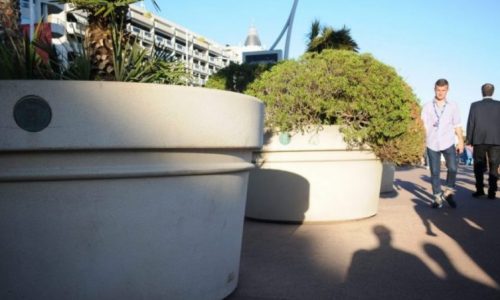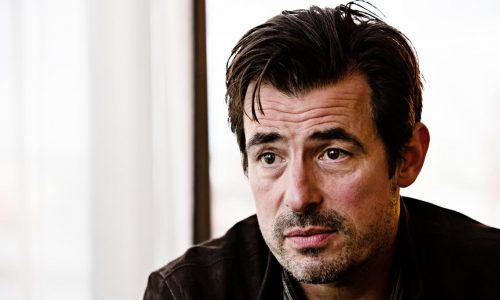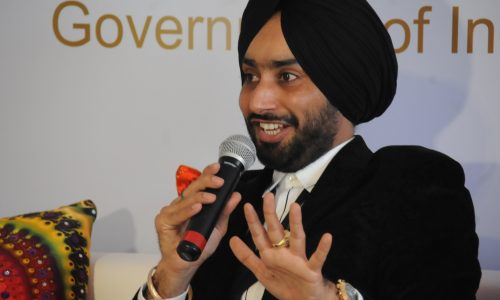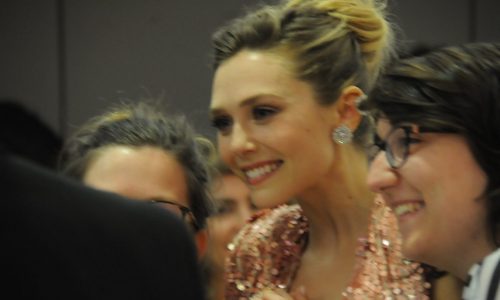Some years ago, a former editor of mine on another website, John Park, described me as “a man about town … on a scooter.” This old me was about to make a comeback. Back in London, I’ve long-since traded in my old Micro-scooter for a Brompton, but this year’s Cannes accommodation looked like being just little too long a walk each morning to make the early press screenings, so I bought a new scooter – with bigger wheels so it looks a little more suited for grown-ups – and brought it with me. What Google streetmap said would take me 27 minutes to walk, took only 11 minutes on the scooter. But when I got to the Palais to collect my credentials, even though it folds up smaller than most people’s Cannes bags, security wouldn’t let me take it inside. They sent me to the left luggage hut about five minutes away. When I arrived there, they wouldn’t let me in without my credentials. Welcome to Cannes 2017.

Security was to become a running theme and it’s understandable why. Some measures were rather in-your-face, such as a military presence, marching up and down the Croisette pedestrian boulevard, while others were more subtle; shoulder-high concrete flower-pots to prevent a repeat of last year’s Nice lorry attack, while doubling as generally attractive decoration of the promenade. Then there were the airport-style metal detectors at every entrance, slowing down access and resulting in apologetic security guards making it clear that they’d rather not have to do it. And perhaps most disconcerting were the plain-clothed police officers brazenly brandishing semi-automatic firearms, as they chatted to film fans who’d stopped to take photographs of the arrivals for the red-carpet premieres. You can’t help but feel that the organisers are desperate to shake-off the feeling that France is a country under siege, but having big guns in your face tends to have the opposite effect.
Having finally navigated the bureaucracy and the extra post-terror-era security measures, I finally collected my press badge which, delightfully, was blue – an unexpected promotion from my previous yellow, and came with a red pin-badge, bearing what, it seems, is one of the phrases most commonly uttered by Cannes delegates: “J’comprends pas, j’ai pas reçu d’invit” – the plea from so many attendees, desperately trying to persuade security guards at parties to let them in. Cannes, at least, has a sense of humour this year.

As did the director of the first film of my Cannes 2017 adventure. Two years after his Force Majeure earned him an Oscar nomination for Best Foreign Language Film, Swedish director Ruben Östlund is back in the limelight, in Competition in Cannes, with The Square. Ostensibly, it’s a satire on modern art, which digs beneath the surface to challenge of views not only of what makes art but also who decides. Dominic West, who plays a pyjama-wearing American artist Julian, displaying piles of gravel at a Stockholm museum, under the title “You Have Nothing,” told a Cannes press conference that he finds “these guys ” pretty scary. “The incredibly knowledgeable artists, who cannot be disputed because they’re talking about art, which is something there’s no definite answer to.” And this – in essence – sums up the film. It has a lot of interesting points to make – about art and about humanity – but some of the vignettes hang together better than others and while the deadpan humour is refreshing, with the running time in the region of two hours and twenty minutes, it can begin to grate, particularly when perfectly valid points are dragged out to strengthen the effect, but threaten to lose viewers in the process. And although the director set out to infuse his film with surreal elements, having a bonobo ape randomly wandering around an apartment where two of the main characters are about to have sex does somewhat take you out of the moment, or perhaps that’s the point? Interestingly, the only opening credit gives the impression that this is a film starring “Elisabeth Moss, Dominic West and Terry Notary,” but it’s actually about how the personal life of a Swedish gallery curator spirals out of control, while Moss’s journalist is interviewing him about West’s exhibit. As for Terry Notary’s input, all I’ll say at this point is that his last film was Kong: Skull Island.
Next it was time to acclimatise, to visit the UK Film Centre to see who was around and to pop to the press room. Laden down with all the paperwork thrust at us on arrival, I was distracted when I noticed a group of photographers scuttling backwards through the Palais lobby area, shouting and snapping. Then I noticed who they were snapping. Clint Eastwood, who’s in Cannes for a masterclass, was on his way to introduce a screening of his Oscar-winning western, Unforgiven, which was showing as part of the Cannes Classics programme. I dropped my paperwork and scrambled for my camera, but by the time I was back on my feet, the nimble 86 year old was long gone.

Remember the controversially spelled Jason Flemyng, best known, despite the passage of nearly two decades, for Lock, Stock and Two Smoking Barrels? Ever wondered what he’s doing now? Well, he’s just shot a Indian/UK/US co-production called The Black Prince, about the relationship between Queen Victoria and the Last King of Punjab, who’s increasingly torn between two cultures. The title character is played by Satinder Sartaaj, a Punjabi poet and singer who sang to gathered journalists at the Indian Pavilion at the launch of the film’s trailer, before a beach-side cocktail party, serving, appropriately, plenty of samosas.

Then it was time to scoot back to the apartment, past perhaps the most attractive and best-disguised anti-terrorism measures in history, to freshen up for the evening activities. First, was a reception laid on by the computer giant HP – one of the main sponsors of the Cannes Film Festival, where they were promoting some of their new toys. I got to play with a virtual reality painting and exploration tool, called Tilt Brush. Fun as it was to move around the landscape and paint strips of colour into 3D knotted loops, doing nothing more than waggling a couple of handsets around, I’m not sure whether the technology is yet a must-have for every modern home. With several virtual reality projects being promoted in Cannes alone, there is a sense that creatives are increasingly trying to find ways to bring it into the mainstream, but it is an oddly solitary form of entertainment, when cinema itself is so much about the shared experience. Perhaps the most surreal moment of this event was watching the Daily Telegraph’s film critic Tim Robey reach over to help a bar-tender open a bottle of champagne she was struggling to open.

The final event of a long and typically busy first day was, annoyingly delayed. Having had next to no sleep before an early flight this morning, the last thing I needed was a half an hour delay on a two hour long film that was due to start at 10pm anyway. Whoever left the suspicious device that forced the evacuation of the previous film at the 1000 seater Debussy cinema clearly didn’t realise I’d had a particularly long day. But a year after Hell or High Water earned plaudits in the Un Certain Regard strand at Cannes, its writer Taylor Sheridan was back in the same section with his own directing debut, Wind River. And it was worth the wait. Another crime drama, this time based on the real story of a pair of brutal and gruesome killings, the film follows a young FBI agent, played by Elizabeth Olsen, who seeks the help of Jeremy Renner’s local hunter in the investigation of the murder of young native American woman on her reservation. Introducing the film on stage, Renner said he had learned and grown a lot, as a human and as an actor, while shooting it. It’s a slow-burning, dark and gritty drama that visits the familiar territory of a “fish out of water” law enforcement officer, but adding such issues as the loneliness of living in a remote wilderness the complexity of running such reservations under separate jurisdictions from the neighbouring white areas. It was a powerful debut, mostly well structured and neatly told, but a little pedestrian in nature and with a little brush with sentimentality softening the tale somewhat in its closing scenes.
